

A LNE Joint Research Project

LNE is currently involved in various standardisation projects developing higher order reference methods and certified reference materials for clinically relevant biomarkers. LNE has been involved in projects related with NDD since 2010 and successfully took part in a number EMRP and EMPIR projects as WP leader (e.g., BioSITrace, NeuroMET, AntiMicroResist, NeuroMET2, SeptiMET). LNE’s involvement in IFCC working groups (IFCC WG-C, BND, ApoMS, PCT) ensures a good links between the clinical and the industrial community allowing a tight cooperation and optimising the dissemination and uptake of the project’s outcomes. LNE will coordinate the project, will lead WP3 and WP5 and contribute to WP1, WP2 (using LC-MS) and WP4.
PTB has expertise in developing quantitative proteomics in clinical and biological samples and provides metrologically traceable results for the characterisation of reference materials using IDMS. PTB is also developing cross-linking mass spectrometry (XL-MS) to characterise protein conformational states and protein-protein interactions. PTB will contribute to WP3 on structural analysis of NDD proteins as well as WP4 and WP5.
TUBITAK will provide SI traceability for the measurement of large biomolecules such as peptides and proteins. The main technical expertise from TUBITAK is LC-MS for purity analysis and the development of RMP that will be used in this project to conduct a feasibility study for the development of a LC-MS method for quantification of GFAP in biological fluids (WP3). TUBITAK will also contribute to WP4 and WP5.
Charité’s neurology department and associated memory clinic has a strong expertise in diagnosing, managing and treating patients suffering different NDD. As part of the university medical centre Charité, the facilities of the NeuroCure clinical research centre are well prepared for sampling, managing and storing body fluids e.g. blood and CSF. In this project, Charité will lead the activity of sample supply to the consortium (WP1, WP2), allowing the development of RMP and CRM. They will also lead activities on impact (WP4) and contribute to WP3 and WP5.
CHUM combines complementary activities in the field of NDD, ranging from the clinical biology (ISO 15189) by implementing, validating and developing cerebrospinal fluid (CSF) and blood routine and research biomarkers to sample collection in a biobank regrouping biological fluids from NDD patients (ISO 20387). A Clinical Proteomics Platform (ISO 9001) coupling multiplex/ultrasensitive technologies and last generation of LC-MS/MS mass spectrometer) allows proteomics research programmes on the quantitation and validation of new biomarkers. CHUM will contribute to all WPs but mainly WP2.
ESPCI uses high-resolution mass spectrometry and hyphenated preparative and separative techniques for protein characterisation. A particular interest is the characterisation of PTMs. ESPCI has been collaborating with LNE since 2017 and will mostly contribute to WP1 supporting LNE in purity assessment of intact protein calibrators and contributing to the optimisation of LC-MS to increase sensitivity. ESPCI will also contribute to WP4 and WP5.
UGOT has expertise in clinical neurochemistry and chairs the IFCC WG-BND. They are key opinion leaders in the area of CSF biomarkers, clinical proteomics, and the neurochemical pathogenesis of Alzheimer’s disease and other brain disorders and are actively working on the transfer of the methods for NDD biomarkers from CSF to blood. UGOT will lead WP1 as well as contribute to WP2, WP4 and WP5.
VUmc has a world-wide leading role in biomarker development, from discovery to clinical implementation for neurological diseases. Moreover, this lab has had the lead in initiatives optimising biomarker research, including the first and later version of guidelines for standardisation of biobanking protocols. The lab is equipped with Simoa instruments and MSD technologies. VUmc will contribute to WP3 helping to define the measurand for GFAP as an example of emerging biomarker and providing biological fluids pools and single specimens. VUmc will also contribute to WP1, WP4 and WP5.
ADx Neurosciences is an IVD manufacturer producing tailor-made antibodies and assays to quantify NDD biomarkers in Alzheimer’s disease, Parkinson’s disease and traumatic brain injury contributing to early diagnosis of these conditions before the appearance of symptoms, providing valuable information from the drug development phase up to clinical practice, to improve the life of patients. ADx will contribute to WP1 and WP2 providing highly selective antibodies and participating in commutability studies as well as WP4 and WP5.
JRC The Reference Material Unit at the Joint Research Centre (JRC) of the European Commission develops and produces reference materials that support the implementation of EU regulations. JRC currently provides about 800 different reference materials of which more than 20 are reference materials of higher metrological traceability as described in the IVDR. In 2017, the JRC together with the IFCC released three CRMs for Amyloid β1-42 in CSF. The JRC will contribute to WP2 by providing expert guidance on the setup and the data analysis of the commutability studies as well as some of the prototype reference materials that will be assessed as well as WP4 and WP5.
CNRS is the French National Centre for Scientific Research under the administrative supervision of the French Ministry of Higher Education and Research. Thanks to its engagement in all fields of knowledge, the CNRS is ranked among the leading global research institutions for its excellent research and innovation achievements. CNRS is the affiliated entity for ESPCI and will mainly contribute to WP1 allowing access to its cutting-edge proteomics facility hosted by ESPCI as well as WP4 and WP5. In this project CNRS is affiliated to ESPCI.
LGC has considerable experience in developing mass spectrometry-based reference measurement procedures for proteins and peptides quantification and protein characterisation including higher order structural analysis. LGC also has broad experience in statistical analysis, measurement uncertainty and method validation, for which a number of guidelines have been published. LGC has coordinated previous EMPIR projects. LGC will lead WP2 and contribute to all other WPs.

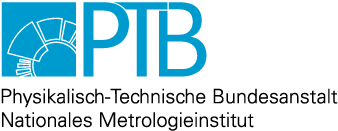
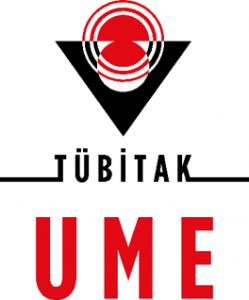

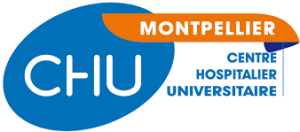


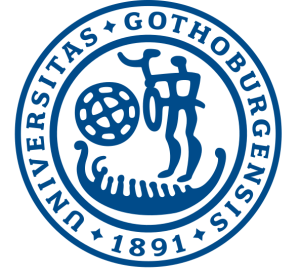

![]()